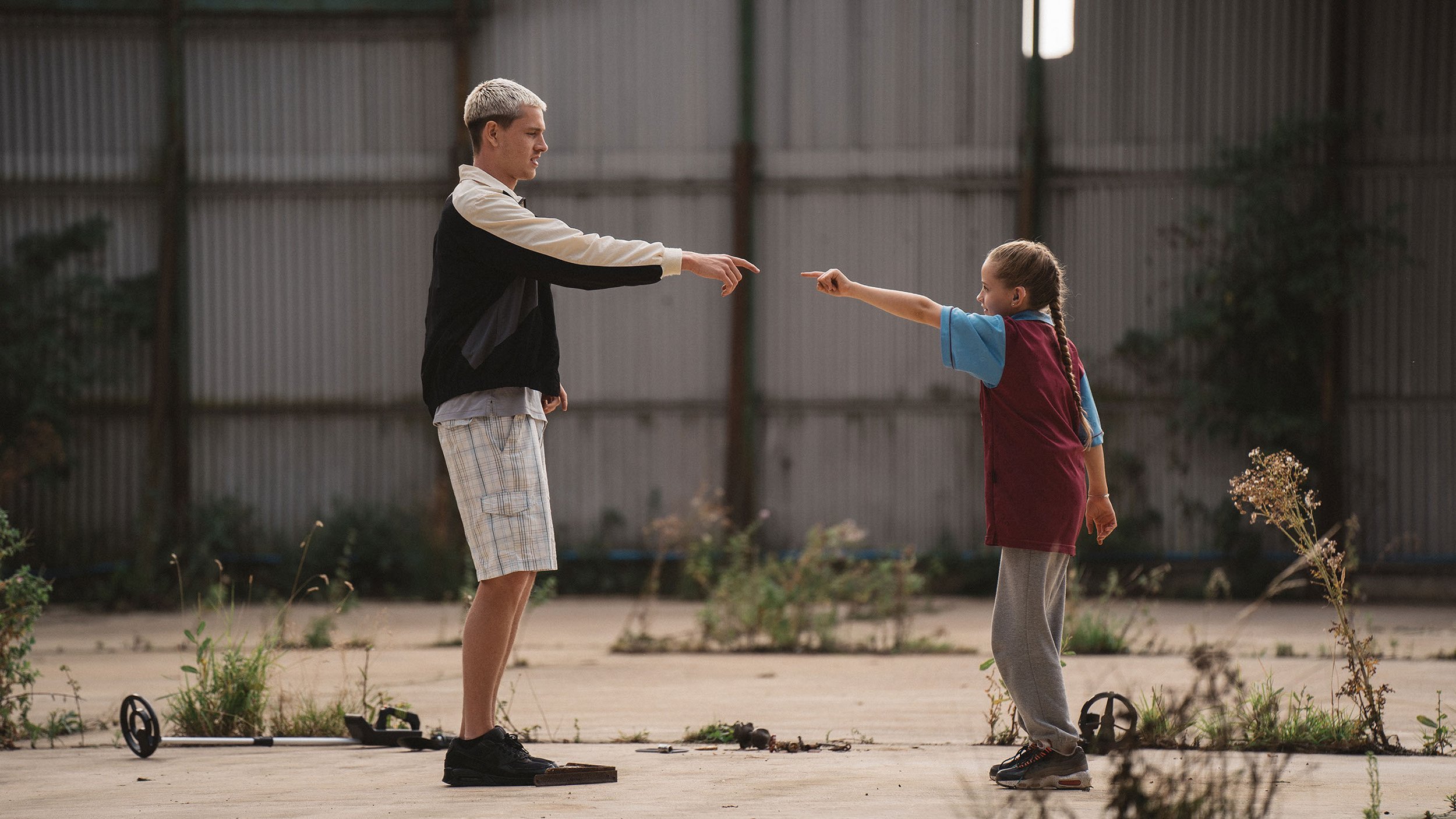SUNDANCE '23: Composer Patrick Jonsson and the Childlike Magic of 'Scrapper'
This piece was originally published on FilmSpeak.
First and foremost, composer Patrick Jonsson is a film lover. Despite the fact that he went to school at the Berklee College of Music in Boston, Massachusetts, and has an impressive career as a composer, film will always be his first love.
“When I was in music school, I remember I used to go to Blockbuster and get two or three movies a day,” Jonsson says. “I was always fascinated by them. The fact that you could write music to movies was kind of crazy sophisticated to me. I didn’t know how one would even begin to do such a thing.”
It’s a question that Jonsson has been able to answer time and time again. His projects range from the Academy Award-winning documentary short The White Helmets to an upcoming Stephen King adaptation to Charlotte Regan’s Scrapper, which had its premiere at this year’s Sundance Film Festival.
So where did his love for music come from? He credits his grandfather and says he was the first person in his family he saw doing something musical.
“My grandfather on the Polish side used to play mandolin. So that was the earliest memory of hearing someone in the family play. His mandolin was so old and rough. I couldn’t even press the frets down. He’s this farmer man,” Jonsson smiled. “I was also in a couple punk bands.”
The way Jonsson describes it, the path from mandolin to punk bands is simple. “There was no epiphany moment, I just kind of always did it,” he supplies matter-of-factly.
Jonsson’s latest project, Scrapper, follows twelve-year-old Georgie (Lola Campbell) in the aftermath of losing her mother (Olivia Brady). Her father (Harris Dickinson), who she has never met, returns from his life in Ibiza to become Georgie’s caretaker. Their subsequent tumultuous attempts at forming a relationship while Georgie processes her grief are the foundation for the film.
Scrapper is not the first collaboration between Jonsson and Regan. They worked together on a short film, Fry-Up, that premiered at Sundance in 2018, as well as an advertisement for The Children’s Society. Scrapper is Regan’s debut feature-length film, and Jonsson felt honored to work with her once again.
“To know that she was investing so much of herself into the story and that she trusted me with that, it was really special to me. I really wanted to do it justice and do my best work for her,” he explains.
Despite the film’s personal nature, Regan gave Jonsson the freedom to explore. “She gives you a playground to play in and just tells you straight up if she doesn’t like something or if she really resonates toward something.”
“In Scrapper,” he continues, “she leaves a lot of space for music in some of the scenes where you really have time as an audience to sit. The storytelling is done without words, which is amazing as a composer.”
Georgie processes her grief by collecting scraps of metal and constructing a massive tower. The music Jonsson wrote for these scenes feels like a gut punch to the audience. He layers a muffled, cherished voice memo from Georgie’s mom with the sounds of metal. “How do you use these cold, sterile instruments or sounds in a way that is warm?” Jonsson poses. His score encapsulates the pain and nostalgia of grief.
courtesy of Sundance
Jonsson’s composing process for Scrapper began with trying to understand the mentality of Georgie. “I had to completely transform and try to embody what I think that might feel like to be young again and have whirling emotions that you can’t make sense of,” he explains. “So it needs to be a little bit chaotic, but it also needs to be beautiful and fun. They look at life through a lens that’s less complicated and they always try to see the lighter side of things.”
Up next for Jonsson is a story that couldn’t be more different: Stephen King’s The Boogeyman. But that stark contrast actually provides something of comfort for Jonsson in his process.
“That’s the trick, right? That they’re completely different to each other. If I was doing two projects that were really similar to each other, then it might be very complicated actually,” Jonsson says. “In The Boogeyman some of the thematic stuff is connected to other stories I’ve worked on in the past, but then the palette of sounds you choose from and the way you approach it is what creates such a different set of rules. It was such a blast to work on something like that, a complete pivot.”
Whether he’s composing for fiction or documentary, Jonsson understands that it’s his role to underscore and provide emotional support for the narrative. Of course, as soon as a camera is turned onto a subject there’s bias, but even with that, Jonsson’s desire is simple.
“It’s about honoring the subjects as much as possible.”
Follow me on BlueSky, Instagram, Letterboxd, YouTube, & Facebook. Check out Movies with My Dad, a new podcast recorded on the car ride home from the movies.

